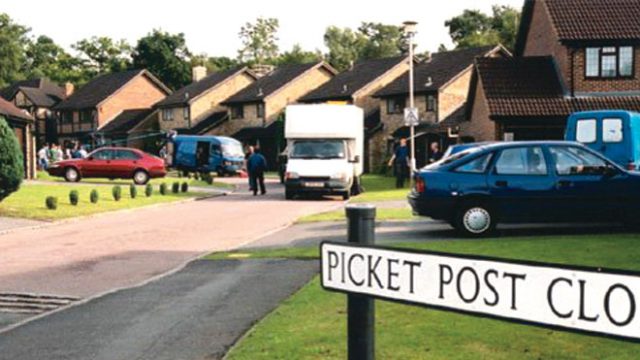There’s no avoiding Harry Potter. If you’re not reading about him (in J.K. Rowling’s novels), you’re reading about him (in the press). If you’re not watching his antics and adventures (in your mind’s eye), you’re watching his antics and adventures (in a movie theatre). For all his ubiquity, I avoided him successfully for years till someone recently gifted me a copy of Harry Potter and the Philosopher’s Stone.
When I wasn’t worrying about the too-realistic unpleasantness of Harry’s life in a cupboard under a staircase on a starvation diet, I would drift off into reveries, transported to England. I thought I could feel the cold wet sunless air, smell the stones and streets, catch a glimpse of a cat’s tail here or an owl’s wing there. I tasted the blandness of the food, saw the cramped houses and small cars, heard the dozens of different English accents of English on a railway platform, sensed damp fog seep slowly into my bones. Slowly the truth about Rowling’s writing dawned on me: this wasn’t fiction, this was fact!
What adults find so addictive about these so-called children’s books is precisely that while they seem to depict imaginary creatures and countries, they evoke an actual people, and that people’s particular, peculiar, parochial culture. You read broomsticks, you think bicycles. You read Quidditch, you think cricket. You read Muggles, you think dull post-Thatcherite Britons, bereft of past glory and future hope, wallowing as much in their failure to hold on to the Empire as to enter the EU.
Most startling of all, you read Hogwarts, and there it is before you, the eccentric universe of Oxbridge, where the rituals of institutional life are so archaic as to be entirely fantastic, where the intellectual preoccupations are so anachronistic as to be no better than make-believe. Who says Rowling writes about an unreal world? The land of her imagination is every bit as grim and weird as the one her countrymen – whether the denizens of depressed suburbia or of an élite milieu that has long had its day – are forced to inhabit in their everyday life. Her magic trick is to conjure up everything non-cosmopolitan (frumpy would be the very English term!) about Englishness, everything that makes England increasingly isolated and irrelevant in a thoroughly post-colonial and globalised environment.

The tradition of captivating adult audiences while purportedly writing for and about children is well-established. Lewis Carroll’s Wonderland held profound philosophical and social insights, C.S. Lewis’s Narnia mapped the landscape of Christian morality. It is this powerful lineage – rather than the racist, classist and sexist pulp churned out by that one-woman industry of children’s fiction, Enid Blyton – that Rowling invokes, descriptions of oppressive English boarding-school life notwithstanding. However, nothing but the unfortunate coincidence of the two phenomena – the Harry Potter books and film, and the Lord of the Rings films – produces the comparison between J.R.R. Tolkien and J.K. Rowling that we see repeated nowadays. The media and marketing machine has waved its customary wand and turned the works of both authors into pots of gold. But the similarity ends there.
Tolkien truly transported us elsewhere, to a place outside of all known places. Middle Earth had a strange seductive sadness; it was a rainbow in a bubble, perfect but fragile, merely a moment’s effect of light and air that vanished if you tried to catch it. Perhaps Tolkien too based himself on the Celtic underbelly or the Scandinavian roots of English civilisation, but the springs of culture he drew on were so remote as to elude us entirely as a recognisable historical reality. He opened a window to a magical world, and enchanted us with its inviolable beauty. Rowling, on the other hand, is an ethnographer under a witch’s hat and cloak. She holds up a mirror to the known. We are riveted by its very banality, spellbound by the familiar.




